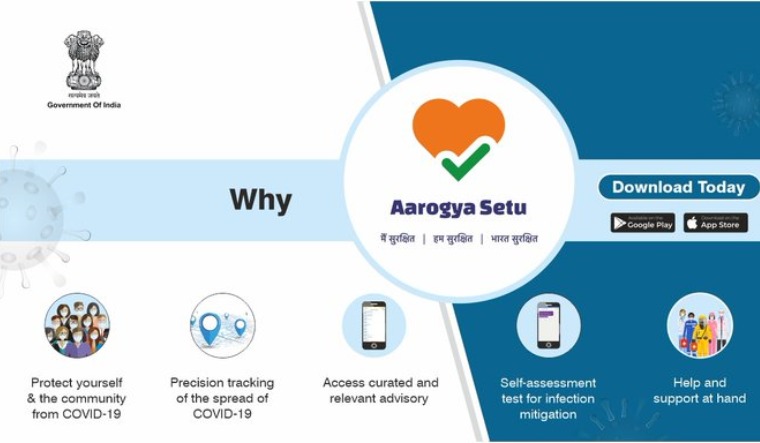On Wednesday, Apple and Google launched the promised software that will allow public health authorities around the world to create mobile applications to notify people if and when they come in contact with a coronavirus-infected person. Both the companies have assured that the "exposure notification" tool does not breach an individual's privacy and also stays away from collecting location details of users.
It utilises Bluetooth radios within smartphones. The software offers developers access to added Bluetooth functionality to solve a problem existing apps have of iPhones sometimes failing to detect each other. Android and iOS device owners will have to carry out system upgrades. People who have updated their phones with the latest software will be able to share their Bluetooth signal, logging when the radio recognizes other people who have downloaded an app that uses the software.
Governments around the world can use the functionality to create contact-tracing apps, similar to Aarogya Setu in India, that can be downloaded via Apple’s App Store or the Google Play store. However, a major difference is that while Aarogya Setu collects location details, the new software facilitates contact-tracing without accessing a user's location details.
Under the notifications system, someone exposed to a person who tests positive for COVID-19 will receive an alert on their phone. "Public health authorities will take the lead with this technology, and we will continue to support and advocate for it."
Apple and Google told the Washington Post that some US states and 22 countries would be using the software.
The report, however, added that Apple customers with phones older than the iPhone 6s, released in September 2015, won’t be eligible to use the exposure notification software because out-of-date phones can’t receive the latest updates. That would cut off about 16 per cent of iPhone users, according to research firm Sensor Tower.
Amid concerns about the security and use of the personal data such tracing apps will generate, Google and Apple laid down several conditions for the use of their technology.
The first is that any app based on it must be voluntary, not gather geolocation data and not be used for commercial purposes.
In addition, only one app per country is allowed so that there is no competition involved while it will be up to the individual user to declare if they have been infected with the virus or not.
When the crisis has disappeared, the system must be taken down.


